|
Life's journey is filled with twists and turns, ups and downs. At Greater Houston Counseling Services (GHCS), we're here to provide expert guidance and support every step of the way. Whether you're an adult seeking assistance or a parent looking to empower your child's emotional well-being, GHCS has you covered. Tailored Solutions for All Ages From children to adults of all ages, GHCS offers a comprehensive range of counseling services. Our team of compassionate and skilled therapists are equipped to address a variety of issues, from childhood behavioral concerns to adult stress and anxiety. Supporting Children and Teens Adolescence can be a challenging time, and GHCS understands the unique needs of young minds. Our child and teen-focused counseling provides a safe space for them to explore their feelings, develop coping skills, and build a strong foundation for emotional well-being. Guidance for Adults Life's pressures can take a toll on our mental health. GHCS offers counseling services for adults, helping you navigate stress, anxiety, relationship challenges, and personal growth. Our evidence-based approaches provide practical tools to overcome obstacles and achieve a healthier mindset. Compassionate Care for Families Family dynamics play a crucial role in our overall well-being. GHCS offers family counseling to strengthen relationships, improve communication, and foster a harmonious environment where everyone can thrive. Accessible and Convenient GHCS understands that convenience matters. We offer both in-person and online counseling sessions, ensuring you can access support in a way that suits your needs and schedule. With a user-friendly website, booking an appointment is just a click away. Empower Your Journey
Empower your journey with GHCS Counseling Services – where compassionate care meets expert guidance. Our team is committed to providing you and your loved ones with the tools to overcome challenges and achieve lasting emotional well-being. Visit our website to learn more about our services and take the first step towards a healthier, happier life. #GHCSExpertise #EmbraceWellness #EmpowerYourJourney
0 Comments
As the new academic year approaches, Greater Houston Counseling Services (GHCS) is thrilled to launch its Back-to-School Supply Drive, a heartfelt initiative to support the unsung heroes of our community – our dedicated educators. We recognize the immense value teachers bring to our children's lives, and it is our mission to ease their burden by providing them with extra school supplies. In this blog, we will explore why it is crucial to support teachers in this way and offer practical tips on how we can all contribute to this noble cause. Why Support Teachers with Extra Supplies? Educators have an enormous responsibility – to educate, inspire, and guide the next generation. Unfortunately, many teachers often find themselves dipping into their own pockets to purchase essential classroom supplies. This financial burden can hinder their ability to create a nurturing learning environment and can take away valuable time and focus from their primary role as educators. By supporting teachers with extra supplies, we can:
Practical Tips to Help Educators: At GHCS, we believe in the power of community involvement to make a positive impact. Here are some practical ways we can all support teachers and contribute to their success:
At GHCS, we are committed to empowering our educators to focus on what they do best – inspiring and educating our children. By supporting teachers with extra supplies, we invest in the future of our community. Let's come together and make a positive impact on the lives of our educators and students as we embark on this new school year. Together, we can ensure that teachers have the tools they need to nurture young minds and shape a brighter future for all.
Let's make a difference, one school supply at a time. Join us in supporting our educators today! #GHCSBacktoSchool #SupportTeachers #EducateToEmpower Nurturing Children's Emotional Well-Being: A Guide for a Successful Back-to-School Experience8/1/2023 As summer winds down and the back-to-school season approaches, parents and caregivers find themselves preparing children for a new academic year. Beyond the school supplies and new backpacks, it's crucial to focus on nurturing children's emotional well-being. At Greater Houston Counseling Services (GHCS), we understand the significance of equipping children with the proper tools to navigate their emotions as they return to the classroom from summer break. In this blog, we'll explore the importance of emotional support during this transition and provide practical tips to ensure children enjoy a positive and enriching back-to-school experience. Communication is Key Encourage open communication with your child about their feelings and thoughts regarding the upcoming school year. Actively listen to their concerns, fears, and excitement, and assure them that their emotions are valid. Establishing a safe and supportive environment for sharing emotions helps children feel understood and supported. Manage Anxiety with Relaxation Techniques Transitioning back to school can trigger anxiety in children. Teach them simple relaxation techniques such as deep breathing exercises, progressive muscle relaxation, or visualization. These techniques can help them cope with stress and anxiety, providing a sense of calmness and control. Set Realistic Expectations Remind children that it's normal to experience a mix of emotions during this time. Encourage them to set realistic goals and expectations for themselves academically and socially. Emphasize that making mistakes is a part of learning and growth, and they should celebrate their efforts regardless of the outcome. Foster a Positive Mindset Promote a positive outlook on the school year by highlighting the exciting aspects of learning and making new friends. Encourage them to focus on the opportunities for personal growth and the joy of reuniting with classmates. Establish a Consistent Routine A consistent daily routine can provide children with a sense of stability and security. Establish a schedule for school days, including designated study time, extracurricular activities, and relaxation periods. Having a predictable routine can reduce feelings of uncertainty and help children feel more prepared for the day ahead. Reinforce Social Skills Social interactions play a significant role in a child's school experience. Encourage and practice social skills such as listening, empathy, and conflict resolution. Role-play scenarios with your child to help them feel more confident in navigating social situations. Promote Self-Care Emphasize the importance of self-care to maintain emotional well-being. Encourage regular physical activity, sufficient sleep, and a balanced diet. Incorporate mindfulness exercises and creative activities into their daily routine to help them stay centered and engaged. As we prepare children for the back-to-school season, let's prioritize their emotional well-being alongside academic success. At GHCS, we believe that equipping children with the proper tools to navigate their emotions is crucial for a successful and enjoyable school year. By fostering open communication, promoting relaxation techniques, and instilling a positive mindset, we can help our children confidently embrace the upcoming challenges and opportunities that the new school year brings. Together, let's support our children's emotional growth and ensure they embark on a fulfilling and enriching back-to-school journey.
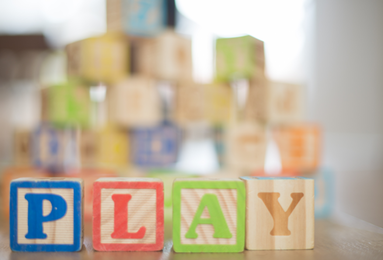 With children, therapy does not have to be the stereotypical activity that we often see in movies and on television. In fact, there is an amazing type of therapy that allows a child to grow into themselves, discover the world around them, and freely express their emotions without restriction. This type of therapy is known as "Play Therapy". What is Play Therapy? Play therapy is a type of therapy often given to children ages 3 to 12 that allows the child to play in a playroom while interacting with the therapist. Through the way that the child plays and interacts with objects around the playroom, the child learns more about who he/she is and the therapist is given the opportunity to see into the child's world. Children who might be given this therapy include those on the autism spectrum, children who are currently dealing with traumatic events in their lives, and children who have behavioral disorders or mental illnesses. The ultimate goal of play therapy is to help children learn healthy coping mechanisms and problem-solving skills, to teach them how to be more respectful and kind to the people around them and to themselves, and to help them overcome the problems that they are currently going through. Why Does Play Therapy Work?
The most important question that people ask is, who is play therapy for? That's a great question! The answer is that play therapy is great for any child and it is sometimes practiced with teenagers and even adults on occasion. All you have to do is find the play therapist that will be best for your child and their needs!  Like any other field, buzz words come and go through the world of psychotherapy and psychology. One word that has been trending lately is “attachment”. And not just attachment, but “reactive attachment”. Like the announcement of the ADHD era, parents and caregivers may be concerned and wondering what reactive attachment disorder is and does it effect me or my child? Reactive attachment disorder (RAD) refers to individuals that have aversions to touch and physical affection, control issues, anger problems, difficulty showing genuine care and affection, and failure to show guilt or remorse. Specifically in children, detached or unresponsive behavior is common. Children and toddlers also are less likely to reach to be picked up, reject efforts to be calmed or soothed, and attempt to avoid eye contact. There are two types of RAD: inhibited and disinhibited. Inhibited type refers more to indiviudals that experience detached or unresponsive symptoms, while disinhibited individuals typically have difficulty selecting the appropriate people or caregivers to attach to. Now I know what it is, but what can I do about it? There are many ways to assist adults and children with working through Reactive Attachment Disorder in order to have more healthy and fulfilling relationships. For childen, unconditonal love is key to helping them learn to re attach in a healthy way. Setting positive limits and boundaries, maintaining predictable schedules and routines, and talking and playing with them regularly also can be helpful. For adults, changing faulty thinking patterns that have led to disengaging from others can be helpful. Working on gaining a positive sense of self-esteem and self acceptance may help as well. Professional help is available for children and adults that are struggling with or are concerned about RAD. For your reading pleasure A great book for promoting and repairing attachment with children is I Love You Rituals by Becky A. Bailey, PhD. It gives different activities for parents and children that encourage bonding and showing unconditional love. Sources www.instituteforattachment.org www.goodtherapy.org www.reactiveattachmentdisorderlife.blogspot.com Want help with Reactive Attachment? Click here!  August is the time where summer is winding down and parents are preparing their kids for back to school. During this time period many adults become overwhelmed and begin to lose sleep because they are up at night thinking about their to do list. This can also be a stressful time for children. Children may develop anxiety about making new friends and having a larger homework load. Here are some tips that parents can do to make the transition of going back to school easier for themselves and their children. Begin a routine similar to the school routine. Most children stay up later and have different eating habits over the summer. A parent can help the child prepare for school by starting a more “school like” routine about two weeks before school starts. This requires an adjusted bedtime and ensuring healthy eating habits. Start discussing what will change when school starts. This prepares children for the upcoming school year. Relax and breathe deep! The transition to back to school can take some time but it won’t last forever. Brace yourself and emphasize the positives of going back to school again! |
Archives
January 2024
Categories
All
|
|
|
Share This Page
Greater Houston Counseling Services
"Making your day a little easier" Phone: (832) 717-7166 |
Four locations across the Houston area |

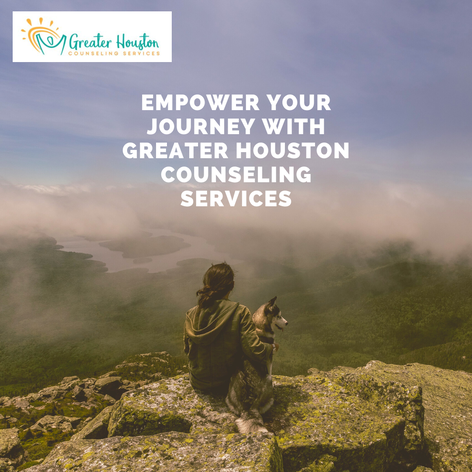
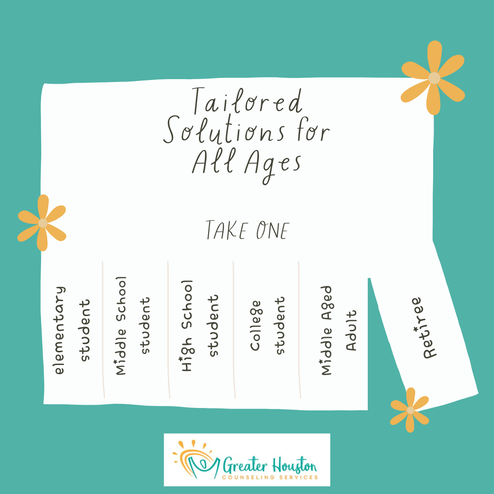

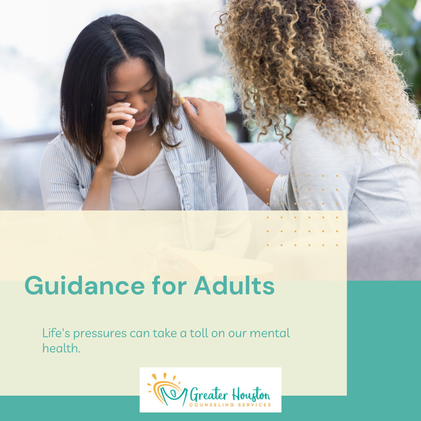




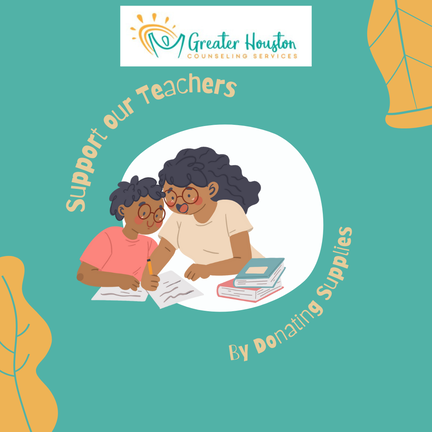
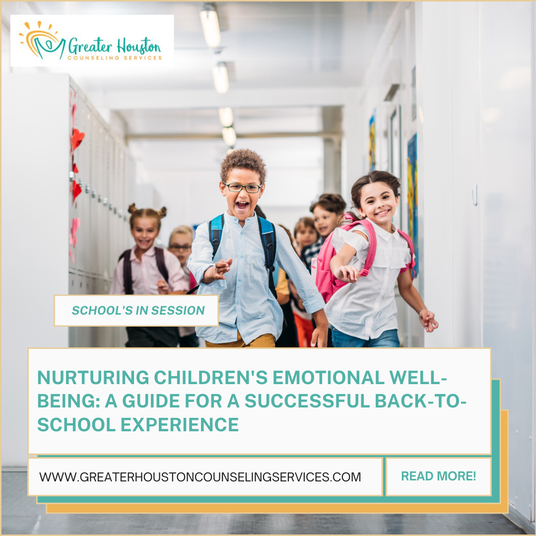
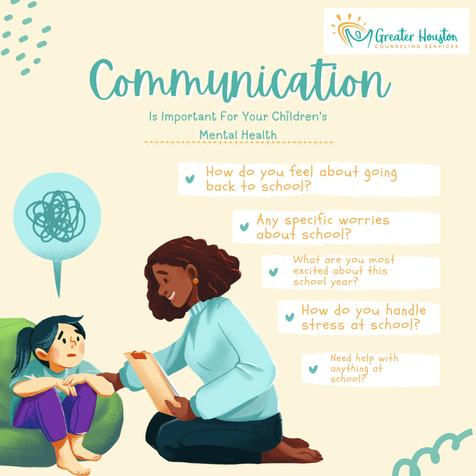
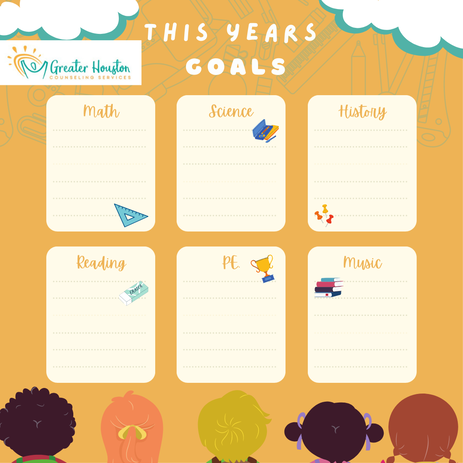
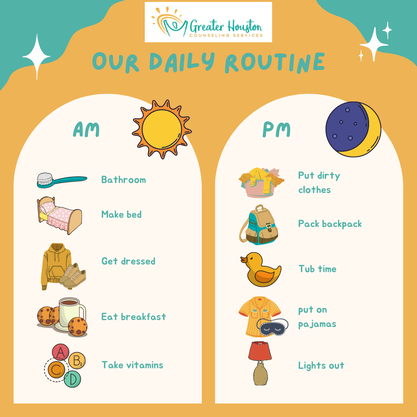
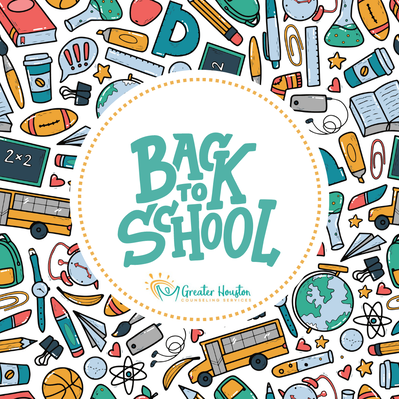
 RSS Feed
RSS Feed